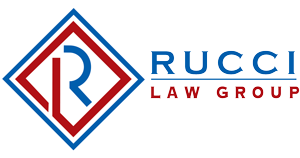Family Law
Family Law
The team at Rucci Law Group provides the experience and the sensitivity needed to represent spouses, parents and children, ensuring that each family law matter is handled with care. The attorneys’ goal is to settle each case to the satisfaction of the party represented whether through the traditional litigation approach or by employing the collaborative divorce model.
When parents are divorcing or separating, the rights of the children add another layer of complexity to the situation. If there is an issue about custody, attorneys are appointed either as guardians ad litem to represent to the court what is in the best interest of the child or as attorneys for the minor child to represent the child’s stated viewpoint as well as guide the Court concerning the child’s best interests.
Key Competencies
Premarital Agreements
The bride and groom (and often parents and grandparents) may wish to settle many aspects of their financial affairs between them before they are married. The parties may agree on the treatment of property owned at the time of the marriage by each party, property that may be inherited during the marriage, gifts received, joint property purchased during the marriage and income that will be earned during the marriage. The parties can also make plans for their interests in each other’s estates. There are many other issues which can be addressed in a prenuptial agreement to avoid stressful decisions in the parties’ marriage.
Postnuptial Agreements
In a relatively recent development in Connecticut law, postnuptial agreements between married couples are clearly enforceable as long as certain disclosure requirements are satisfied. Such agreements can resolve the same issues as premarital agreements and other issues that may arise during the marriage over concerns about property interests and estates, among many other issues.
Divorce
- Division of Marital Assets: when a couple divorces, all of their marital property is divided according to Connecticut equitable dissolution law unless otherwise agreed to in a premarital or postnuptial agreement
- Alimony/Spousal Support: payments from one spouse to the other may be on an ongoing basis or in a lump sum to provide support or assistance
- Child Custody and Parenting Responsibility: in the dissolution of a marriage, the parties or the Court will determine how parents will share their time with their child, both during or in the aftermath of the divorce
- Child Support: parents have a financial obligation to support their children at least until a child is 18 years old and a child support order will be issued as part of a divorce
- Educational Support: in addition to child support, the parties may make their own agreement about how to pay for their children’s college education or the Court may provide for post-secondary education expenses to be paid by one or both parents
- Paternity and Visitation: paternity is a determination of the biological father if there is uncertainty, either parent may seek a determination by the Court
- Grandparents Rights: if not the guardians, grandparents and other third parties, who have established a “parent-like” relationship with a child may have an opportunity to protect that relationship under certain circumstances
- Collaborative Divorce: the process of establishing a mutual binding agreement between spouses without resort to the Court except for the beginning and end of the case.
- Arbitration: the parties may choose to engage a private “judge” to hear their case and make final decisions about all property and support issues, except issues related to children
- Divorce Modifications: sometimes a divorce order needs to be modified or changed after the divorce is over
Legal Separation
In Connecticut, the process to enter into a legal separation is the same as the process to dissolve a marriage. The most common reason to pursue a legal separation is based on religious considerations. Another common reason used to be to protect health insurance coverage, but that is not typically the case now.
For more information, please contact George Reilly.
Quick Links
Rucci Law Group, LLC
19 Old Kings Highway South
Suite 110
Darien, CT 06820
203-202-9686
